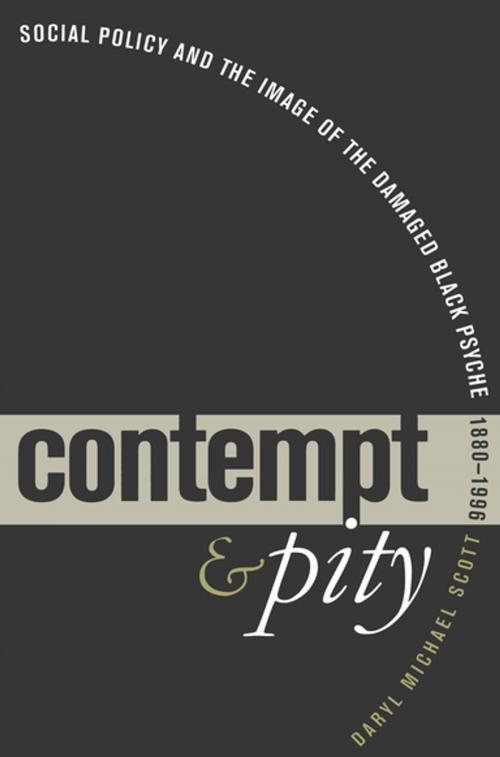Contempt and Pity
Social Policy and the Image of the Damaged Black Psyche, 1880-1996
Nonfiction, History, Americas, United States| Author: | Daryl Michael Scott | ISBN: | 9780807864425 |
| Publisher: | The University of North Carolina Press | Publication: | November 9, 2000 |
| Imprint: | The University of North Carolina Press | Language: | English |
| Author: | Daryl Michael Scott |
| ISBN: | 9780807864425 |
| Publisher: | The University of North Carolina Press |
| Publication: | November 9, 2000 |
| Imprint: | The University of North Carolina Press |
| Language: | English |
For over a century, the idea that African Americans are psychologically damaged has played an important role in discussions of race. In this provocative work, Daryl Michael Scott argues that damage imagery has been the product of liberals and conservatives, of racists and antiracists. While racial conservatives, often playing on white contempt for blacks, have sought to use findings of black pathology to justify exclusionary policies, racial liberals have used damage imagery primarily to promote policies of inclusion and rehabilitation. In advancing his argument, Scott challenges some long-held beliefs about the history of damage imagery. He rediscovers the liberal impulses behind Stanley Elkins's Sambo hypothesis and Daniel Patrick Moynihan's Negro Family and exposes the damage imagery in the work of Ralph Ellison, the leading anti-pathologist. He also corrects the view that the Chicago School depicted blacks as pathological products of matriarchy. New Negro experts such as Charles Johnson and E. Franklin Frazier, he says, disdained sympathy-seeking and refrained from exploring individual pathology. Scott's reassessment of social science sheds new light on Brown v. Board of Education, revealing how experts reversed four decades of theory in order to represent segregation as inherently damaging to blacks. In this controversial work, Scott warns the Left of the dangers in their recent rediscovery of damage imagery in an age of conservative reform.
For over a century, the idea that African Americans are psychologically damaged has played an important role in discussions of race. In this provocative work, Daryl Michael Scott argues that damage imagery has been the product of liberals and conservatives, of racists and antiracists. While racial conservatives, often playing on white contempt for blacks, have sought to use findings of black pathology to justify exclusionary policies, racial liberals have used damage imagery primarily to promote policies of inclusion and rehabilitation. In advancing his argument, Scott challenges some long-held beliefs about the history of damage imagery. He rediscovers the liberal impulses behind Stanley Elkins's Sambo hypothesis and Daniel Patrick Moynihan's Negro Family and exposes the damage imagery in the work of Ralph Ellison, the leading anti-pathologist. He also corrects the view that the Chicago School depicted blacks as pathological products of matriarchy. New Negro experts such as Charles Johnson and E. Franklin Frazier, he says, disdained sympathy-seeking and refrained from exploring individual pathology. Scott's reassessment of social science sheds new light on Brown v. Board of Education, revealing how experts reversed four decades of theory in order to represent segregation as inherently damaging to blacks. In this controversial work, Scott warns the Left of the dangers in their recent rediscovery of damage imagery in an age of conservative reform.















